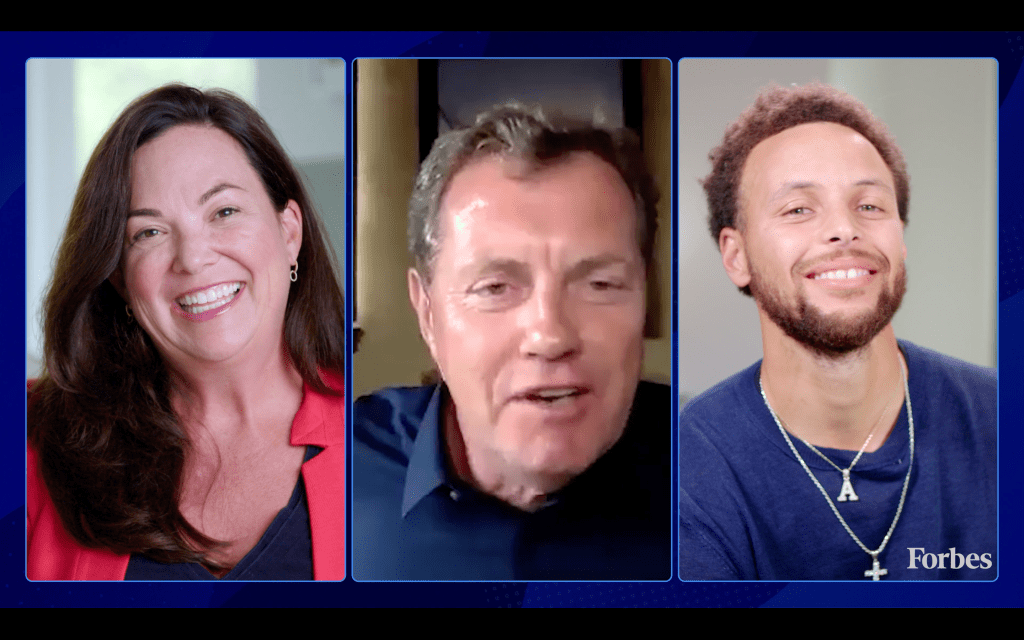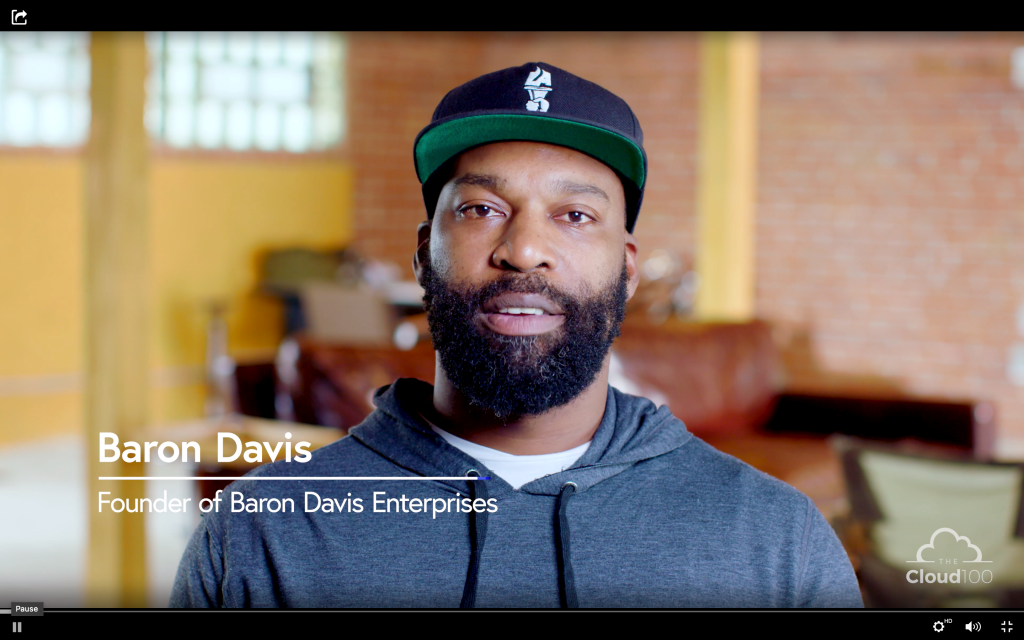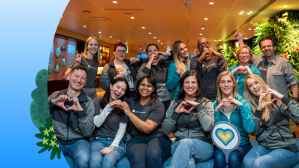We’ve never been more dependent on cloud technology. In a year when so many things we took for granted were turned upside down, disrupted and redefined, cloud companies enabled and amplified our best efforts to adapt. Their apps helped facilitate a return to productivity, find new ways to get together at a distance, quickly shift critical business processes online, and serve and retain valued customers.
Last week, Salesforce Ventures, in partnership with Forbes and Bessemer Venture Partners, released the fifth annual Cloud 100 list and co-hosted the Cloud 100 Summit, a celebration of the 2020 100 top-performing, privately-held cloud technology companies. Salesforce Ventures has been an ardent supporter of cloud technology companies for more than a decade, amassing the largest portfolio of startups in the industry, and we’re proud backers of twenty of these companies, including Snowflake (#1), Stripe (#2), Auth0 (#19), Automation Anywhere (#20), Automattic (#63), and more. You can read more about these companies and takeaways from this year’s list here.
More than a dozen CEOs, including Stephen Curry of SC30 Inc., Frank Slootman of Snowflake, Jennifer Tejada of PagerDuty, and Eric Yuan of Zoom, generously made the time to speak at the 2020 Cloud 100 Summit, where they discussed topics ranging from how to craft the best go-to-market strategy to how to prepare your company to go public.
If you missed the event, don’t worry; we watched every minute and took notes. While each session offered a number of valuable insights, there were a handful of takeaways that stood out as valuable lessons to other leaders.

Culture and values are always important, but in a time of crisis, they’re critical
The past seven months have been a whirlwind. From virtually making and selling software, and hiring and onboarding new employees, to deciding how to manage changes in their business, CEOs everywhere have truly been put to the test.
Making critical business decisions is much easier when you and your team have an established True North to follow. Jennifer Tejada said it perfectly: “When surrounded by uncertainty, values are a foundation to help you weather any storm, but likewise thrive in an environment like this. I can’t imagine trying to lead an organization through the amount of change and constant chaos we’re going through right now without a strong set of values that brought us all together.”
Frank Slootman asserted that a well-defined, focused culture is a competitive advantage. “It doesn’t matter how great your product is; you need to have an organization to match it,” he said. “Culture is really the only thing that’s uniquely yours. Companies have access to talent. They have access to capital. They have access to anything. But the only thing that’s uniquely you is your culture.”
Constructive team dynamics also lead to better performance from the CEO. “How I handle a decision may affect whether we win or lose,” said Stephen Curry. “The power of the collective when I’m on my game and I’m making all the right decisions and executing my style to the best of my abilities, lets everyone else look.

Business as a platform for change
For global companies in this new era, developing great products and delivering profits are no longer enough. And in a year where society has been facing several global crises all at once — a health crisis, an economic crisis, a racial injustice crisis and a climate crisis — leaders are furthering their commitment to driving change through their businesses. Slootman suggested looking at your own company as a microcosm of society, expecting that issues will eventually come up, and quickly addressing them: “When you’re running a company, you’re setting out to be much better than society as a whole because you have a smaller group of people and more influence,” he said.
Zander Lurie, CEO of SurveyMonkey, shared his perspective on a CEOs role. “We now have this incredible position—our voice, our employee-base, our resources, our products—and we can harness those to make change in the world.” he says. “I think it’s pushing all CEOs to really make HR a fundamental part of your job, who you employ, how you pay, who you promote and what kind of culture and values you espouse at your company. You got to give somebody like Marc Benioff credit. He has long been an advocate for, you can just do a lot more as a public company CEO of a company with scale and growth and profitability. You don’t need to be confined to just hitting your EPS targets. You actually can speak out and take action on a whole broad range of issues that are important to your customers and your employees. I think we all take that advice, and we can do more with it.”
Baron Davis, CEO of Baron Davis Enterprises, suggested also looking outward to your community and thinking about different ways you can take action. “How can you disrupt the current system and then build a better ecosystem to where you’re actually giving to the world?” he asked.

As part of the Cloud 100, we awarded the The Pledge 1% Impact Award, which goes to a company that demonstrates an outstanding commitment to giving back and making a measurable positive impact. Previous winners include Twilio, DocuSign, Slack, and Procore. Canva CEO, Melanie Perkins, received this award on behalf of her company and shared how important it is for companies to commit to pledging a portion of their time, product, profit and equity to be a force for good. In the last four years, Cloud 100 companies have ignited $500M+ in new philanthropy via their IPOs by taking the equity pledge. You can learn more about the equity pledge here.
In times of uncertainty, put extra effort into understanding and serving valued colleagues and customers
Whether it’s delighting new customers and giving them a reason to stick around, or upselling existing customers, the strongest companies don’t take chances on losing revenue or missing out on new opportunities — especially when times are tight for many buyers.
Eric Yuan, CEO of Zoom, said he’s had more sleepless nights in the past six months than ever in his life. No one could have predicted that an enterprise tool for video conferencing would be used all day, every day by organizations all around the world, let alone be used as a lifeline for tens of millions of students — and even a venue for virtual wedding ceremonies. “There were so many new use cases on how to keep the service up. And it was full of uncertainty,” said Yuan. He pointed out his team’s commitment to work around the clock to provide reliable service, despite the pressure of serving unprecedented demand. “Our investment in culture paid off. We do all we can to truly care about every user.”
Jennifer Tejada, who recommends managers proactively reach out to their team, customers and partners and actively listen: “Empathize with what they’re going through and note that every single person is experiencing this environment and pandemic differently,” she says. “We can only see a narrow view of what our employees and customers are going through. As a leader, assume it’s more than you think, and demonstrate you care more than they know.”
Sharing your company’s sense of purpose can be motivating and reassuring to people inside and outside of the organization. “Part of the job of a CEO, is about communications to all of your stakeholders, starting with your employees and your customers,” says Zander Lurie, CEO of SurveyMonkey. “To get everybody rowing in the same direction, you need to be vigilant in communicating your strategy, your mission, your priorities, what you count as success, and your values.”
We encourage you to watch the recorded conversations here, where you can also explore the full Forbes Cloud 100 list and find additional insights on the latest innovations in cloud.

















